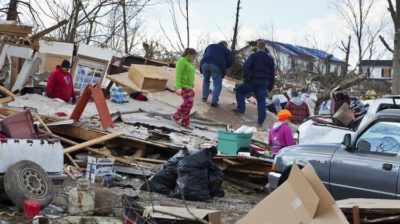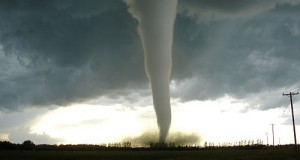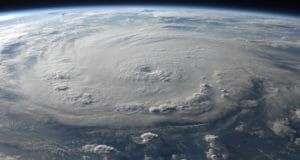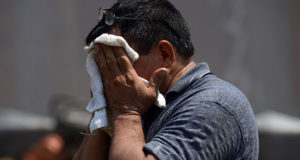 Charley Hogwood, the owner and chief instructor of P.R.E.P. – Personal Readiness Education Programs, recently sat down with Off The Grid News to discuss the benefits of mutual assistance groups, the emotional aspects of preparedness, and his new book, MAGS – The People Part of Prepping.
Charley Hogwood, the owner and chief instructor of P.R.E.P. – Personal Readiness Education Programs, recently sat down with Off The Grid News to discuss the benefits of mutual assistance groups, the emotional aspects of preparedness, and his new book, MAGS – The People Part of Prepping.
Hogwood was recently interviewed by CNN during the Life Changes Be Ready Expo in Florida. The journalist noted during the piece how prepping was growing in popularity, how the idea of becoming more self-reliant was on the verge of going mainstream, and the folks attending the event did not appear to coincide with the stereotypes often promoted about preppers by the media.
MAGS was written to serve as an instruction guide for both the “solo survivor” and as a reference manual for established mutual assistance groups of all sizes.
Charley describes his unique book and the in-depth approach like this:
By employing the hard learned lessons carefully researched from active groups, and applying sociology, history, law and threat analysis, the survivor will understand what to look for in a group, how to build one from scratch, how to fix one that has become dysfunctional and where to put it in a hurry.
OTG: What are mutual assistance groups?
Charley: A mutual assistance group is a group of similarly minded individuals who pledge to assist each other in times of crisis. A group could be a family, a small group of friends or an entire community.
OTG: Why do you feel a significant number of preppers shy away from forming or joining mutual assistance groups?
Charley: The most common fears we hear about have to do with trust and personal security. People worry that someone will turn on them and take their supplies, or shun them as crazy. While this is always a concern, the methods we outline in our book MAGS are specifically designed to mitigate these valid worries. Another problem many people have is just finding other people because they don’t know where to look or how to approach others. We have carefully outlined how to converse with potential group members and where to look for prepper friends. The recurring theme we found in our research was the importance of relationship building and teamwork for a successful group, survival or not.
New Relocation Manual Helps Average Americans Get Out Of Harms Way Before The Coming Crisis
OTG: How can someone tell if a mutual assistance group is right for him or her?
Charley: Before you can make that decision you must understand yourself. We spend almost as much time talking you out of joining a group as we do in celebrating the benefits of working with others. This is because we want the individual to identify what is important to them and what goals they have for their own survival. Once you understand this, you can set out to assemble your dream team. If you try to shortcut the process you will invite unrealistic expectations from yourself and others. This will lead to dysfunction and disagreement.
OTG: What should a prepper consider before sharing too much personal information or joining a mutual assistance group?
Charley: It is important to play your secrets close to the vest until you are comfortable in the new relationship. If there is no important reason for someone to know something, keep it to yourself. Ask yourself, “Why does this person need to know this?” before you share it. How might this information come back to harm you later? Take your time and share evenly with others. Don’t allow yourself to feel pressured into sharing private information. Conversely, if someone else is sharing too much, let him or her know. It is also important that you do share anything that may be a problem for the group or safety of a member. For example, if you are aware of a health concern, let someone know so they can be prepared in case you become incapacitated.
OTG: What is common mutual assistance group (MAG) etiquette for potential or newbie members?
Charley: The best strategy for a new member is to blend in and participate regularly. Don’t keep finding excuses for not showing up. Don’t ask too many questions of a private nature and don’t come off as overbearing. Just be friendly and helpful. By the time you are welcomed as a new member you should already have an understanding of how the group works and what is unwelcome behavior. Communicate, participate and be respectful. Just be family, and treat others as you desire to be treated. This is another reason why careful vetting is so important.
OTG: Where can one look to find a mutual assistance group in their area, or one near their bugout location?
Charley: If you are planning to evacuate to another area be sure to put in as much effort with that community as the one you regularly live in. Anywhere that self-reliant people frequent is a good place to look. Join a Community Emergency Response Team (CERT), volunteer at the local emergency services, look for gardening or outdoor clubs or even take a survival class locally. Be wary of online relationships. If you participate in an online meeting group, look for members who you like and develop the relationship slowly.
OTG: What are some skills a prepper should highlight to display his or her potential worth to a mutual assistance group?
Charley: Any skill that is transferable to living off grid is of value. To be even more valuable, learn something that is unusual such as in the fields of medical, food production/preservation, communication, self-defense, tactical, water purification, etc. When you have nothing else, a useful skill has value. However, if all you know is tactical information, then you may want to add to your list of skills to make yourself a bit more well-rounded.
OTG: What suggestions would you offer to a prepper who wants to organize a mutual assistance group?
Charley: Assuming you have found others already by carefully vetting and building those relationships, it will be important to give the group direction. Meet regularly to practice skills. Establish a foundation by writing down what the rules are and what the group’s mission is. Make sure everyone understands his or her role and responsibility. Keep it interesting to keep people coming back.
OTG: What are the basic elements that should be included in the MAG’s mission statement?
Charley: The mission statement defines who your group is. Have everyone participate in the design of the statement. This will go a long way toward understanding and commitment by the members and will reduce the confusion of what it is that we are here to do.
- Begin with a purpose statement that defines the desired outcome of the group. It doesn’t say how you’ll do it just what you are trying to do.
- Next, add a how-to statement. What activities will we do as a group?
- Add a value statement if you wish to include any religious or moral values you desire to follow.
- Keep the statement relatively short and allow others to participate so they feel like they have a say in the design of the group. This will foster unity and commitment.
OTG: Is there usually an oath involved when joining a mutual assistance group? Why is an oath important?
Charley: An oath is a great idea because it has people verbalize their understanding of the group, fosters further commitment and makes it real. All of this and volumes more are in our book MAGS: The People Part of Prepping.
OTG: What types of classes are taught at your survival school in Florida?
Charley: We blend multiple genres of survival and preparedness from pioneering to homesteading to urban and wilderness survival. Most of our classes are geared toward the novice and moderate level of prepping. For advanced and seasoned veterans we refresh skills they may have not practiced in some time and fill in the gaps they may have missed along the way with updated information and methods. Our catalog includes over 40 different learning opportunities. From water purification and food storage to geopolitical trigger points and the interaction of government and disaster in your community.
OTG: How is your approach to preparedness and survival training different?
Charley: Many of our classes are critical thinking in nature and can be heavy in the fields of contingency planning and awareness. All of our classes delve into a deeper level of learning that is rarely found elsewhere. By the time a class is over, most people have taken many notes and learned not only the how, but the why as well. This is an important distinction when you are forced to be resourceful someday. We usually hear from students that they had no idea that some of this information even existed or that they even needed to be aware of it.
OTG: Can preppers who do not live in Florida take any of your classes online?
Charley: We are currently in production to make our classes available online in a professional format. Stay tuned for more information. We are also available for travel and consulting. If you would like to have us speak or teach at your location, contact us at [email protected]. We invite everyone to check out our Facebook and Twitter feeds, they are a great place to hear about all the latest preparedness related news.
 Off The Grid News Better Ideas For Off The Grid Living
Off The Grid News Better Ideas For Off The Grid Living




